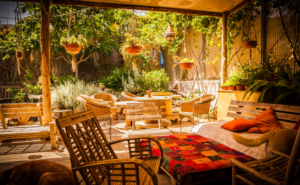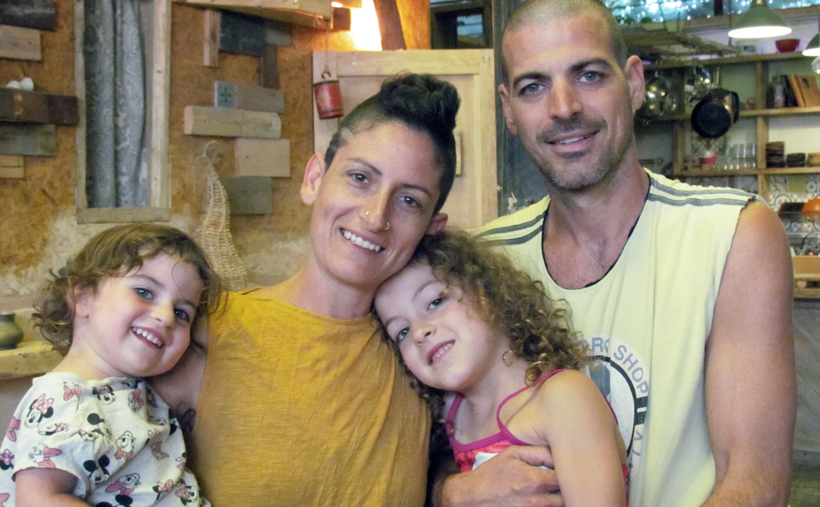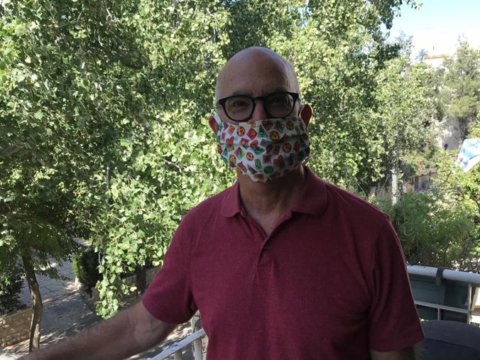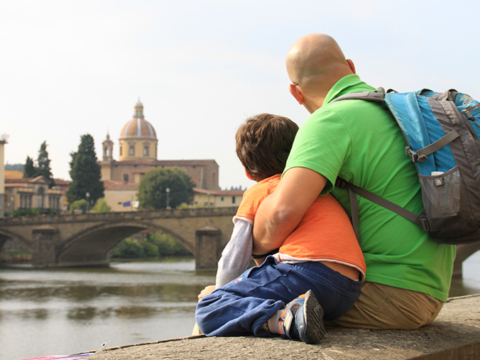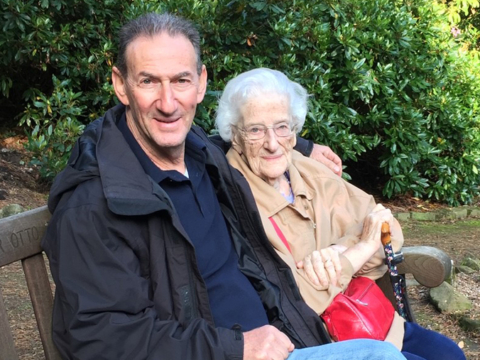Sustainable love
We’ve all seen plenty of soppy Hollywood movies that end with the couple sailing away into the sunset, to live happily ever after. But for Tu B’Av, the Jewish holiday of love, we thought we’d look at a real-life romance, one that is being lived out today in the desert, in Mitzpe Ramon.
It’s a love story that begins ten years ago at, of all places, a sweat lodge. “I was really into the purification ritual,” says Saar, “and didn’t notice anyone around. But afterwards, I saw Hadas. You need to wash after the sweat lodge and, like a gentleman, I offered to hold the hose for her.” Hadas says, “I liked his freedom, his wildness, his honesty. He still has it today. It’s even stronger, like a storm of freedom.”
This shared love of freedom brought them to the wild beauty of the Ramon crater in the Negev desert. Although Saar was originally from Israel’s green north, he “wanted to live in the desert. And when Hadas said that was her dream too, it was a wow moment.” Hadas says, “I grew up near the desert, in Meitar near Beer Sheva. The desert is my home.”
The economic realities of living in the desert are far from easy. Unable to establish the farm they dreamed of, Hadas worked in “all kinds of jobs, in about 20 places” while Saar’s work, helping youth at risk, meant he was often away. But then granola comes into our tale. Hadas’s organic cereals were a hit at the Mitzpe Ramon market and “we started working together. We sublet a tiny part of a tiny store where we sold local organic produce.” They then opened an organic restaurant where Hadas did the baking and Saar the cooking.
Today, they’ve linked their names as well as their energies and are running Hadasaar Together, a boutique lodging and hospitality center, which includes environmental cooking workshops, wine tours, and visits to the artists, environmentalists and ideological entrepreneurs that live in the area’s Spice Quarter. Even more than the extraordinary crater and nature, Saar believes that Mitzpe Ramon is about “the unique people. There’s a magic here. The harshness, the nothingness of the desert allows people to pour their dreams into it, to find themselves.”
Working together, while living with their two young children in a house bus, is about “trying to be as close as possible to what we believe in,” says Saar. “We believe in sustainability in the broadest sense. As a couple, our main resource is us. If we don’t go on the same line, we’re wasting our resources.” Hadas explains that working together “is not simple but it’s how we find meaning in our work. We let each person do what they’re good at.”
Over time, their love for the desert has matured. “At first, I saw the desert romantically but now I have more understanding of it,“ says Saar. “As the sages said, if you want to be rich, go north. But if you want wisdom, go south, to the desert.” Hadas believes that “the desert can bring out the best in people but you have to be ready, to be in the right moment, so that you can cope with its power and the extremes. The desert is like a mirror into us.”
For Hadas and Saar, this Tu B’Av will be a time for music, for wine and for watching the desert stars. But it will also be something more, a celebration of the togetherness they base their lives around. As Saar says, “sustainability, or the Hebrew phrase we like, ‘arvut hadadit,’ is about mutual responsibility, not just as a couple, but for everything and for everyone.”
